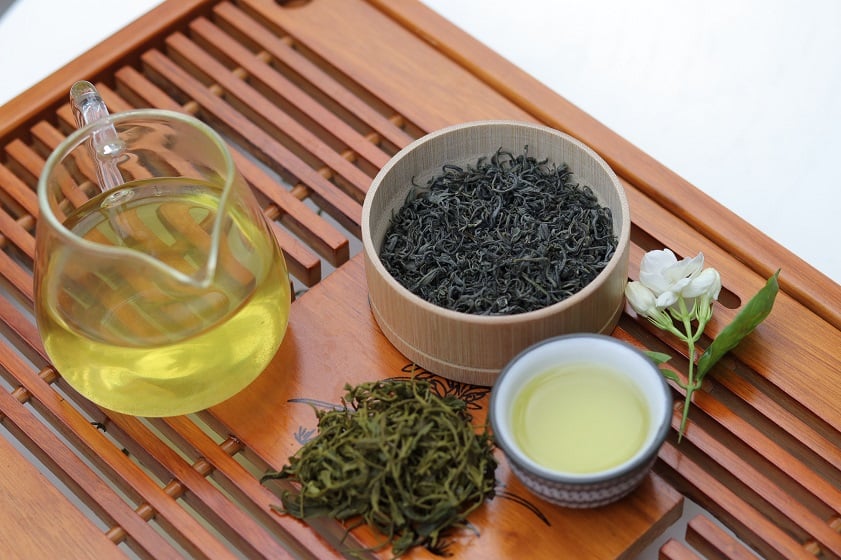
In the misty highlands of Vietnam, Thai Nguyen tea emerges as a gem within the world of tea. This comprehensive guide invites you to embark on a captivating journey through the illustrious history, diverse types, and sprawling plantations that define the essence of Thai Nguyen. Whether you are a seasoned tea connoisseur or a curious enthusiast, an exploration into Thai Nguyen tea promises to be a delightful odyssey into the heart of Vietnam travel.
1. How famous is Thai Nguyen tea? What are some famous types?
The history of Thai Nguyen tea intertwines with Vietnam's broader tea cultivation narrative. Pre-1882, local farmers in the highlands and valleys surrounding massive mountains grew tea spontaneously. In 1882, French scientists came along with modern techniques and machinery, leading to increased output. Simultaneously, two new industrial tea types, specifically black tea for Western Europe and Chinese green tea for Northern Africa, emerged.
After the victory in the resistance war against French colonial rule, the North Vietnamese government implemented crucial policies, including the creation of national tea cooperatives. This structure has since evolved into numerous private tea plantations and companies, shaping the contemporary landscape of Thai Nguyen tea cultivation.
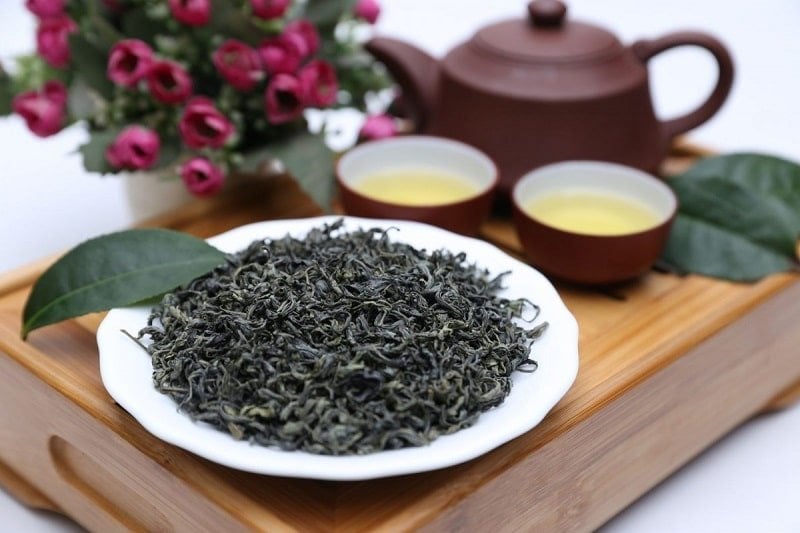
Here are some famous types of Thai Nguyen tea:
- Tan Cuong Jasmine-infused Tea: This is a splendid fusion of the distinctive taste of Thai Nguyen green tea and the gentle aroma of jasmine.
- Tan Cuong Noble Tea: Crafted from 100% green tea buds grown in Tan Cuong, this tea boasts a rich color, a distinctive aroma, and a unique aftertaste.
- Tan Cuong Hook Tea: Harvested from 1 to 2 adjacent young tea leaves, this Thai Nguyen tea looks somewhat like a hook, hence its intriguing name.
- Tan Cuong Lotus-infused Tea: This tea blends the special fragrance of Thai Nguyen tea with the delicately sweet scent of the lotus in Hanoi’s West Lake.
- Tan Cuong Young Tea: Harvested from a single bud with an adjacent non-opening tea leaf, this tea brings the mildly fragrant scent of young rice.
- Tan Cuong Bud Tea: Harvested from buds with 2 to 3 adjacent young tea leaves, this tea provides a characteristic strong taste typical of Thai Nguyen tea.
>>> Discover some famous Vietnamese teas on your trip to this beautiful country!
2. What makes the flavor of Thai Nguyen tea?
Thai Nguyen tea Vietnam, renowned for its aromatic young rice essence, mild bitterness, and sweet aftertaste, is most distinctively appreciated in Tan Cuong. Here, the soil conditions, with unique trace elements and a slightly acidic pH, and the subtropical climate contribute to the tea's exceptional flavor profile. The lower heat radiation in the region, specifically 61.2 kcal/cm2/year, is a decisive factor in creating the unique Thai Nguyen tea.
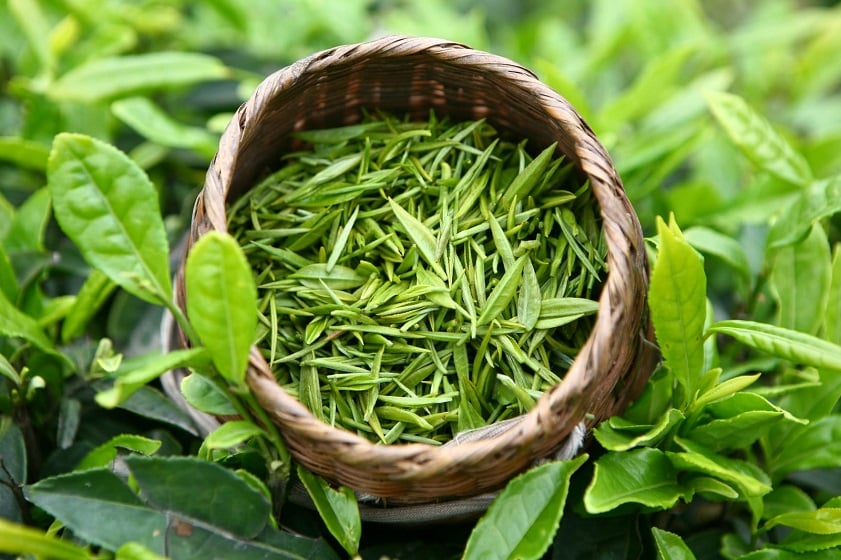
>>> Explore Thai Nguyen weather for a seamless trip to this destination!
3. Where are the best Thai Nguyen tea plantations to visit?
3.1. Tan Cuong Tea Plantation
Tan Cuong Tea Plantation is considered the cradle of the renowned Thai Nguyen tea, spanning 400 hectares. The tea from Tan Cuong is characterized by its vibrant green and yellow hues, along with the delightful fragrance of young rice. When brewed, it initially presents a mild bitterness, but gradually transitions into a sweet, lingering aftertaste that spreads throughout the palate of tea connoisseurs. Here, there is also a Tea Cultural Space, part of Thai Nguyen Museum, where you can learn about the region’s tea cultivation tradition.
3.2. Trai Cai Tea Plantation
Trai Cai Tea Plantation has been a haven of tea for over 30 years, spanning 600 hectares. The locals here are all equipped with extensive knowledge regarding tea cultivation that was drawn from age-old expertise. Together, they have crafted a universally cherished tea. Upon brewing, Thai Nguyen tea from Trai Cai brings a gentle fragrance, a green-yellow hue akin to honey, and a taste that evolves from a mild bitterness to a lingering sweetness on the palate.
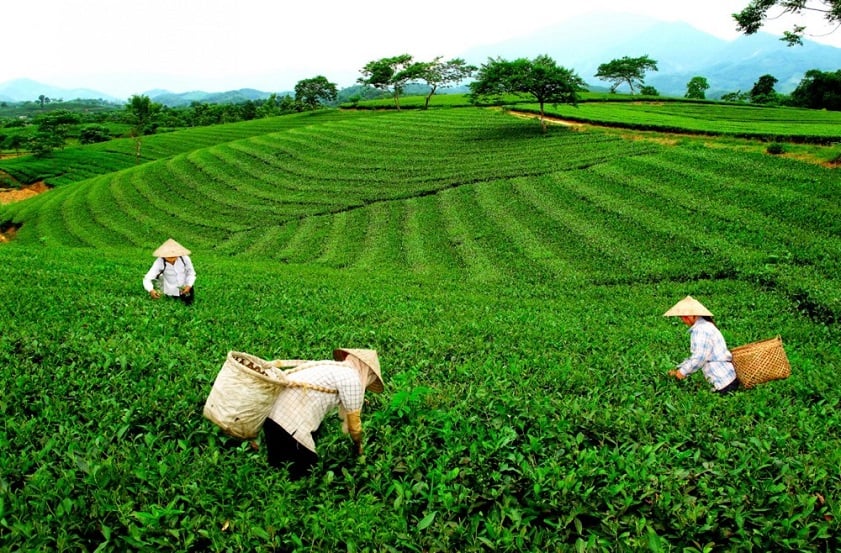
3.3. La Bang Tea Plantation
La Bang stands out as a key area for Thai Nguyen tea, rivaling other renowned plantations. With over 200 hectares dedicated to tea cultivation, La Bang is hailed for producing high-quality teas. The artisans from this area have been actively participating in and excelling at various tea competitions. The favorable soil and climate conditions, coupled with meticulous processing, result in a premium tea with a delightful aroma. La Bang is recognized not only for its tea excellence but also for crafting teas that offer enhanced benefits for consumers.
3.4. Tuc Tranh - Phu Do - Vo Tranh Tea Plantation
This combined tea plantation is a pivotal supplier of Thai Nguyen tea, boasting the province's highest yield at 100 tons per hectare. This constitutes 12% of the total tea cultivation area in the province. Benefiting from water sources from the Cau River, this area enjoys year-round tea harvesting. As a result, during fairs, locals and tourists alike converge here, creating a bustling atmosphere for the trade and exploration of tea.
Coming to these tea plantations, tourists can explore around and participate in guided tours to learn more about the tea cultivation process. In addition, you will get to see the traditional tea-making art and savor freshly brewed Thai Nguyen tea. Hands-on activities like tea leaf picking provide interactive engagement, while tea festivals offer vibrant celebrations with music, dances, and culinary delights infused with the essence of tea.
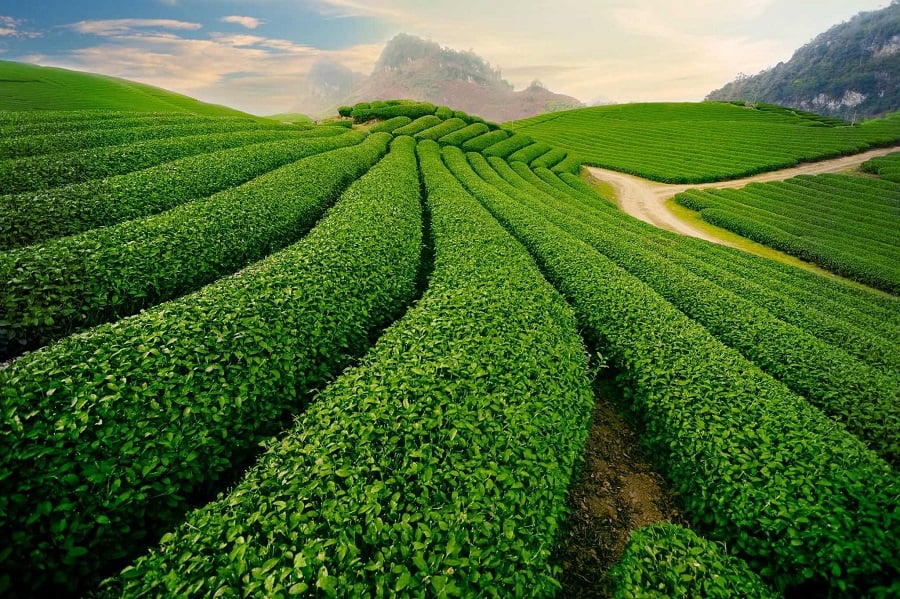
>>> Check out this North Vietnam itinerary for the most exciting journey!
4. Where to buy authentic Thai Nguyen tea?
The ideal approach is to purchase tea directly from the mentioned tea plantations in Thai Nguyen. Alternatively, you can seek reputable tea vendors with verified origins and product certifications. Some trusted options include Tan Cuong Hoang Binh Tea Company, An Loc Son Tea Company, Bac Kinh Do Tea Company, Phuong Phuong Tea Company, and Ha Thai Tea Company.
In conclusion, Thai Nguyen tea stands as a testament to Vietnam’s herbal heritage. Its humble origins have evolved into a cherished beverage with unique characteristics, becoming a symbol of tea excellence.
Besides Thai Nguyen, you can extend your trip to Hanoi, Ho Chi Minh City, Phu Quoc, Nha Trang, Hoi An, Ha Long, etc. to thoroughly embrace all that Vietnam has to offer, from landscapes to gastronomy. While in Vietnam, don’t forget to indulge in unparalleled hospitality at Vinpearl’s hotels and resorts. Offering ocean-view rooms, private villas, fine dining, rejuvenating spas, and scenic golf courses, these establishments ensure a delightful stay.
Additionally, don't miss the chance to visit the entertainment complexes of VinWonders for an enriching cultural experience featuring thrilling games and captivating shows.


>>> Book rooms in Vinpearl Phu Quoc, Vinpearl Nha Trang, Vinpearl Resort & Golf Nam Hoi An, Vinpearl Resort & Spa Ha Long and immerse yourself in a delightful stay in Vietnam!
























